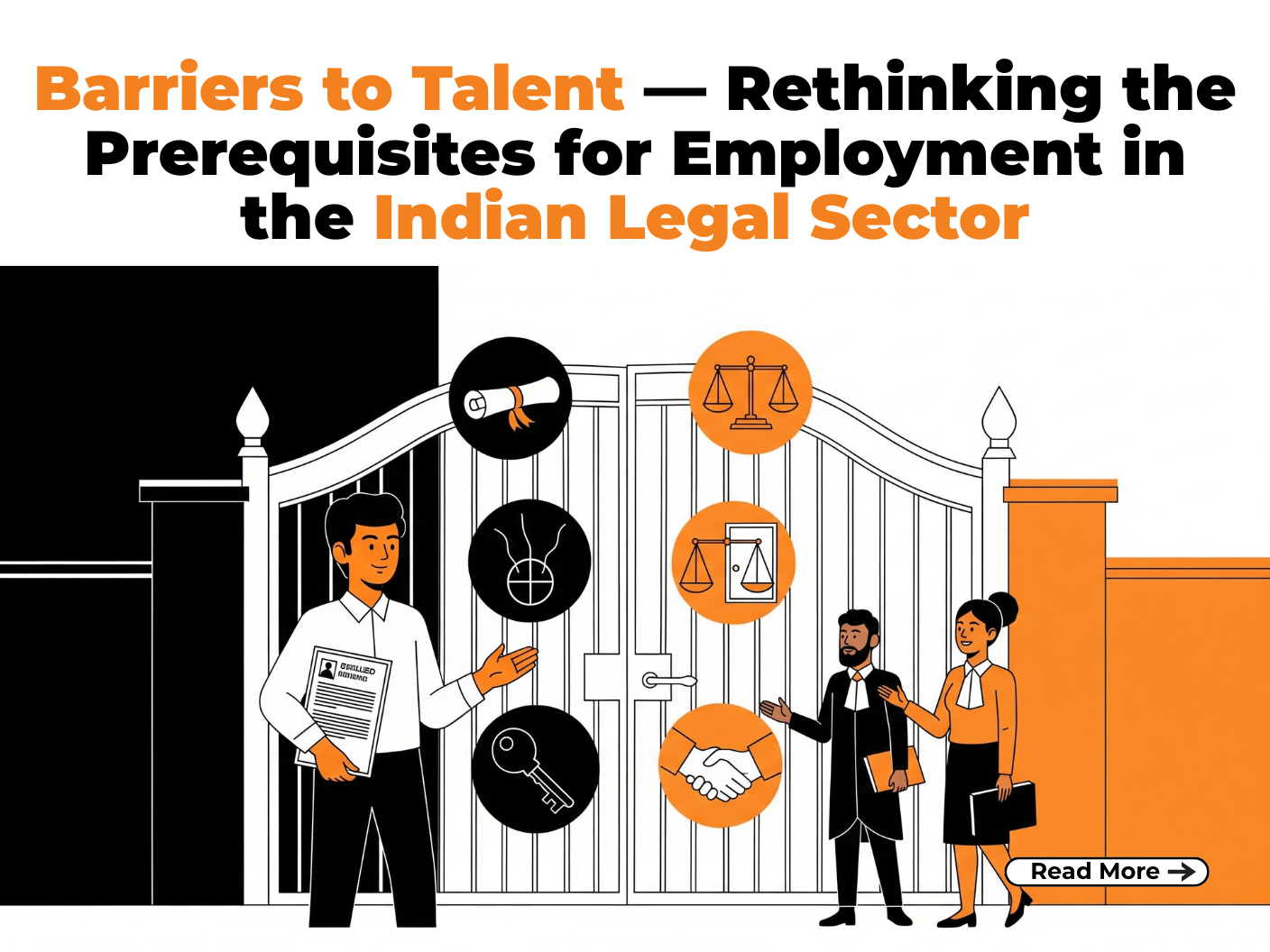Despite a surge in legal education, the gap between aspiration and opportunity in Indian legal sector employment continues to widen, especially for those without systemic support. India, often hailed as a nation with immense intellectual capital, paradoxically grapples with rising unemployment among its most talented individuals. Nowhere is this irony more evident than in the legal profession, where highly capable individuals find themselves restricted not by lack of knowledge or potential, but by systemic barriers such as rigid examination prerequisites, reservation policies, non-transparency, and allegations of corruption. For many aspirants, especially those targeting roles through exams like UGC NET or PCS Judiciary, these challenges are not just hurdles—they’re roadblocks that derail careers and stifle dreams.
The Rigid Gatekeeping of Legal Careers
To enter the legal academia or judiciary in India, candidates must clear competitive exams such as:
- UGC NET (for positions like Assistant Professors in Law)
- State-level PCS (Judiciary) exams (for judicial magistrates and civil judges)
While examinations are a logical method to ensure competency, the current model appears to serve more as a filtration system than a true test of merit. The issue does not lie in the exams themselves, but in how they are conducted and the prerequisites imposed.
Undermining Capability Through Prerequisites
The standard expectation is that passing these exams is an objective benchmark. However, the reality is far from ideal. Many candidates who are extraordinarily talented—authors of research papers, recipients of fellowships, mooters, and scholars—struggle due to:
- Limited seats and excessive competition
- A disproportionate focus on rote learning over practical skills
- Delays and irregularities in exam schedules and result declarations
These factors reduce opportunities for deserving candidates, forcing them to remain in a cycle of attempts and rejections, despite having potential that far exceeds the scope of the tests.
This dilemma underscores how skills vs degrees in law continues to be a blind spot in recruitment—where hands-on experience and intellectual contributions are ignored in favor of standard test scores.
The Role of Reservation and Non Transparency
While affirmative action was introduced to address historical injustices, the current implementation has created its own set of inequalities.
Issues with Reservation in Legal Exams
- Merit dilution: In exams with very few seats, a significant portion reserved for specific categories reduces the scope for open competition.
- Demoralization of General Category aspirants: Capable individuals, regardless of their socio-economic background, often feel disheartened when merit takes a backseat to category-based selection.
- Loss of trust in the system: When candidates perceive that results are predetermined or manipulated, it leads to widespread disillusionment.
Allegations of Embezzlement and Foul Play
Concerns regarding exam leaks, favoritism, and irregularities in interview processes further erode the faith of young aspirants. The combination of unfair practices and non-transparency fuels:
- Public distrust
- Legal challenges
- Wasted years of preparation
This not only affects individuals but also dents the credibility of the institutions conducting these examinations.
Consequences: Brain Drain and Wasted Potential
The most damaging fallout of this broken system is the loss of talent. Many brilliant minds, after years of frustration, either:
- Shift abroad in pursuit of better opportunities,
- Join the private sector in roles far below their potential, or
- Give up on their aspirations entirely.
Such outcomes are tragic not only on a personal level but also for the nation. A system meant to harness and empower talent ends up wasting it.
Real Stories, Real Struggles
There are countless stories of law graduates who have:
- Cleared international law certifications but failed domestic judiciary exams.
- Published research in peer-reviewed journals but remain unemployed due to not clearing UGC NET.
- Invested years preparing for judiciary services, only to face opaque selection and political interference.
These are not exceptions—they are increasingly becoming the norm.
The Way Forward: Reforming the System
The solution lies not in discarding examinations altogether but in reforming them to reflect fairness, transparency, and meritocracy.
Recommendations for Reform
- Merit-Based Evaluation:
- Exams should prioritize legal aptitude, reasoning, and contemporary knowledge over rote memorization.
- Remove or significantly reduce reservations in highly specialized exams.
- Transparent Recruitment Process:
- Publish detailed marks, answer keys, and selection criteria.
- Enable third-party audits of recruitment procedures.
- Periodic and Timely Examinations:
- Conduct exams regularly to avoid backlog and reduce anxiety among aspirants.
- Inclusion of Practical Assessments:
- Consider internships, moot court participation, and research output as part of evaluation.
- Use of Technology for Fairness:
- AI-based proctoring, anonymized evaluation, and digital monitoring can reduce human bias.
Conclusion: Empowering Talent, Not Restricting It
India’s legal system and academic institutions require the best minds to function effectively and evolve. However, if the current system continues to hinder rather than help, the consequences will be dire—not just for the individuals affected, but for the legal ecosystem and society as a whole.
It is time to reimagine our examination and recruitment practices—to create pathways that recognize merit, ensure transparency, and discard outdated prerequisites that have no bearing on real-world capability. By doing so, India can not only retain its brightest legal minds but also foster a just, efficient, and world-class legal system that truly reflects the potential of its people.
To ensure true legal sector inclusivity and fair access to legal careers in India, it’s time to dismantle outdated legal career barriers and reimagine how we evaluate candidates for jobs in law in India.














